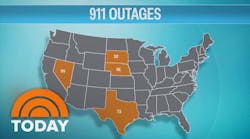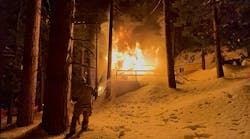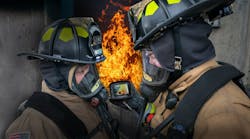This past week at Fire Rescue International in Dallas, I had the honor of moderating a very distinguished panel of communications experts. While the discussion included interoperability, future communications proposals and other related topics, the discussions highlighted the FCC mandate on narrowbanding.
Throughout this article, I will attempt to heighten awareness surrounding the narrowbanding mandate. For a more thorough understanding, a comprehensive publication is available from the International Association of Fire Chiefs, "FCC Narrowbanding Mandate - A Public Safety Guide for Compliance".
In 2013, all radios in the identified radio spectrum bands will be mandated to meet the FCC narrowband requirements.
What is Narrowbanding & What is Affected
While the narrowbanding/refarming of frequencies has been on the books for several years, it has perhaps been far enough away that many public safety leaders have forgotten about this standing FCC mandate but it is expected to happen and it will effect operations.
The spectrum bands that are affected:
- VHF: 150 -174
- UHF: 421 - 430: available only in Detroit, Buffalo and Cleveland
- UHF: 450 - 470: available nationwide
- UHF: 470 - 512: shared with UHF-TV; available only in 11 cities
What is narrowbanding? Without getting too technical, it simply means that the spectrum on which many of us operate will be split in half. The general reasoning behind this is to create more frequency capacity from that which already exists. The net result is a doubling of radio spectrum in these identified bands.
The impact comes in how our radios operate. Older radios that were certified before February 14, 1997 may not have the capability of narrowbanding while those certified after February 14, 1997 were required to meet this narrowbanding mandate. This affects transmitters and mobile radios alike.
Some things that you need to know if you are affected by this mandate:
- In 2011, the FCC will no longer accept new or modified applications that exceed the narrowbanding guidelines
- The narrowbanding mandate is not optional
- Understanding the situation and planning appropriately may allow for migration to be done in a gradual way
- Narrowbanding is not the same as the 800 MHz rebanding. Rebanding is focused on eliminating present and future interference in that spectrum band that occurred because of interference between commercial and public safety frequencies. This interference created very dangerous and unpredictable communications problems for public safety.
- Be cautious when purchasing older radio equipment to insure that you are buying more equipment that will have to be replaced as part of the mandate
So what do we do?
First is to become fully aware of the situation by working with your manufacturer or radio maintenance shop to determine what equipment that you have in place and identify all of the equipment that will need to be replaced.
Start Planning Today
- Take inventory and identify equipment that must be replaced
- Identify the impact and the alternatives available
- Develop a migration plan to strategically replace equipment over time
- Inform/update elected and appointed officials and jointly develop a funding source to make this happen
- Test the radios operating in the narrowbanding
- This transition warrants testing of the new equipment to understand functional differences, especially when it comes to coverage and operation.
Refarming of radio frequencies is also another result of rebanding which will allow for more efficient use of the radio spectrum.
Radio communications is critical to command and control and it is extremely important that all public safety officials become and remain aware of the changes that are ahead. Presently, there are a number of radio spectrum issues that are affecting or will affect public safety organizations. These issues include (but are not limited to) rebanding, narrowbanding, refarming and new radio spectrum communications proposals.





